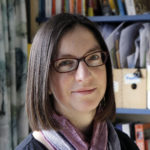We seem to have all these disorders that we ascribe to our children. “Attention deficit and hyperactivity disorder” seems to have been around for a while. More recently I heard about “pathological demand avoidance.” And this week “oppositional defiance disorder” was brought to my attention. There used to be “autistic spectrum disorder” but now we call that “autistic spectrum condition” as an acknowledgement of the fact that maybe these people don’t actually have “something wrong with them” but are just a particular sort of person. I wonder how long it will take for the “disorder” bit to come out of those other conditions too.
Maybe in the past these children would just have been seen as dullards, retards, trouble-makers or delinquents. It seems that, now we’ve recognised the possibility that they might just not be having their needs met, more and more children are being put in these categories – understandably because most people who care about a child will prefer a focus on getting their needs met rather than leaving them to be punished or neglected.
I can’t help though wondering what the logical conclusion of this shift is. I wonder what proportion of children (and adults) need to be identified as having a disorder before we conclude that perhaps the disorder isn’t in them? Is it possible that a society in which so many people are not having their needs met might in fact be a disordered society? Is it time for us to look at our systems, structures and institutions and to ask ourselves, what disorders do they have? How could we design them better so that they work for all kinds of people, rather than just for a particular group who fit certain criteria? Could our schools, our workplaces, our nurseries and children’s clubs/activities be more flexible, less judgemental, more person-centred? Perhaps the technology available to us now could provide some avenues for tailoring services more for individuals.
I’d love to be a part of a society that was making that shift.
